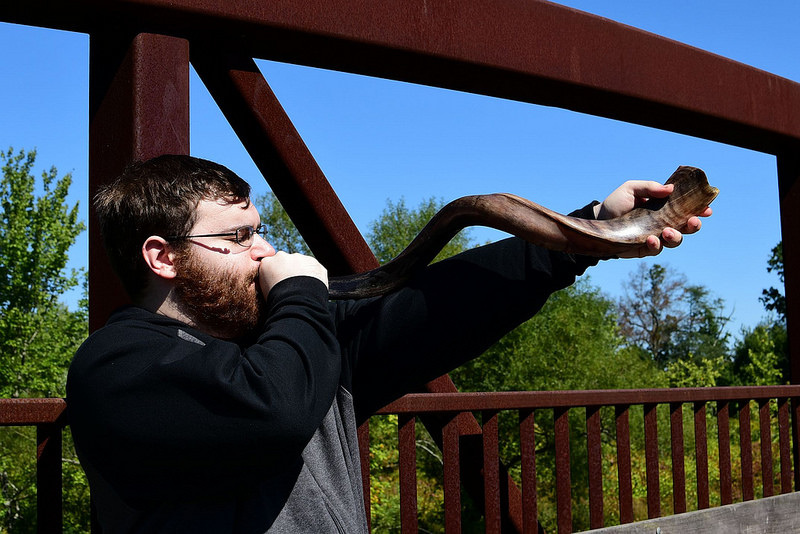|
The New Year (5777) is upon us and Jewish people around the world will be greeting one another by declaring "L'shanah tovah" (for a good year). Over the two days of celebrating the "Head of the year," or Rosh Hashanah, the shofars will be blown 100 times each day. The number 100 has several meanings. It means fullness or full compensation, election of grace and children of promise.
The sound of the shofar is such a significant part of the celebration of the New Year that this feast is called "Yom Teru'ah" or Day of Blowing. We are called to gather together for the New Year. "Say to the Israelites: 'On the first day of the seventh month you are to have a day of rest, a sacred assembly commemorated with trumpet blasts. Do no regular work, but present an offering made to the Lord by fire.'" (Leviticus 23:24-25) This is a celebration of the birth of the world and humanity. Yom Teru'ah occurs during the seventh month of Tishrei, seven being the number of completion, perfection and rest. It is a Sabbath month dedicated to the Lord. Tishrei is connected with the Hebrew letter LAMED which signifies ones yearning to return to their absolute source. The New Year is a time to remember the past and to begin anew. It is also a time to be fruitful and multiply as the month of Tishrei is the month of the tribe of Ephraim which means double fruit. The feast of the Day of Blowing is meant to paint a picture of the Lord's return. However, the blowing of the shofar is also a reminder to look to the past to the roots of our faith and family. Genesis 22 is traditionally read in the synagogue. This is the story of Abraham and his trust in the Lord. He told his son Isaac--who was to be sacrificed as a burnt offering on Mt. Moriah--"God Himself will provide the lamb for the burnt offering..." (Genesis 22:7) It is interesting that the rabbis chose to highlight the portion of Scripture that teaches about the substitute atonement provided by God for Abraham's son, Isaac. "Abraham looked up and there in a thicket he saw a ram caught by its horns. He went over and took the ram and sacrificed it as a burnt offering instead of his son." (Genesis 22:13) Without the ram we would not have the ram's horn. And so the blowing of the shofar reminds us of the past, calls us to assemble together to remember the sacrifice that Abraham was called to make and to repent for the sins of the past year. Not only does the sound of the shofar warn of danger, but it heralds the beginning of a time of Jubilee and of a new year. Believers should be reminded that our Messiah will return to the sound of the trumpet. (Matthew 24:29-31) The things that we read in the Old Testament and the feasts of the Lord are shadows of the New Testament. (Colossians 2:16-17) They point us to our Messiah. The story of Abraham and Isaac illuminates God's plan to redeem humanity from sin and death. Rosh Hashanah is the beginning of a season of introspection and repentance called the 10 Days of Awe. It is a time to get right with others and request forgiveness from those we have wronged. The 10 days are completed on Yom Kippur, a day of fasting and prayer when we are to get right with God. Five days later the 8-day celebration of Sukkot (The Feast of Tabernacles) will be celebrated. The fall feasts call us to return to God and experience His glory. The glory of God is manifest in Jesus, our Messiah. Psalm 98:6 declares, "With trumpets and the blast of the ram's horn--shout for joy before the Lord, the King." Indeed, just as God gave the ram to Abraham, He gave us the sacrificial lamb, His Son, who is our shield and the horn of our salvation. (Psalm 18:2) This is reason to celebrate. It is time to declare "L'shanah tovah." |
Joan E. MathiasCategories
All
Archives
July 2024
|

 RSS Feed
RSS Feed